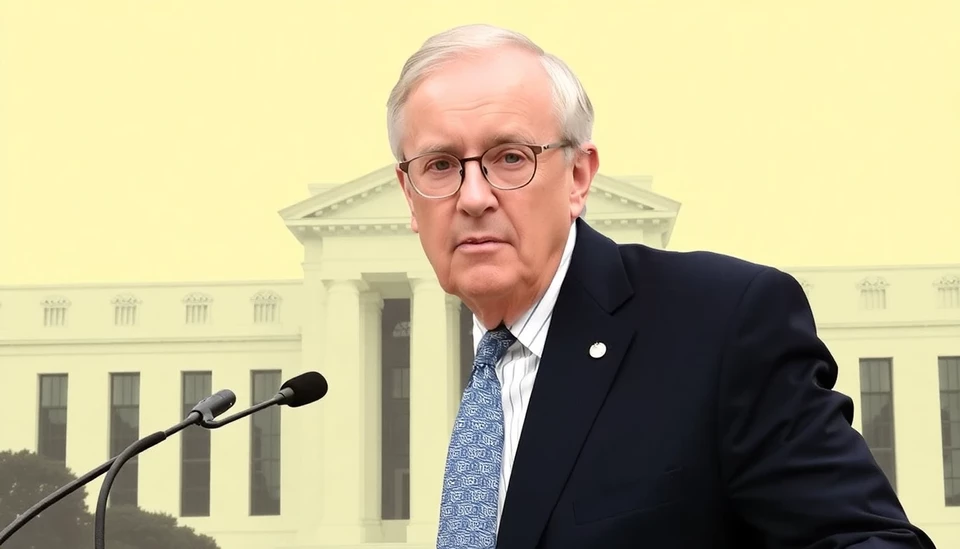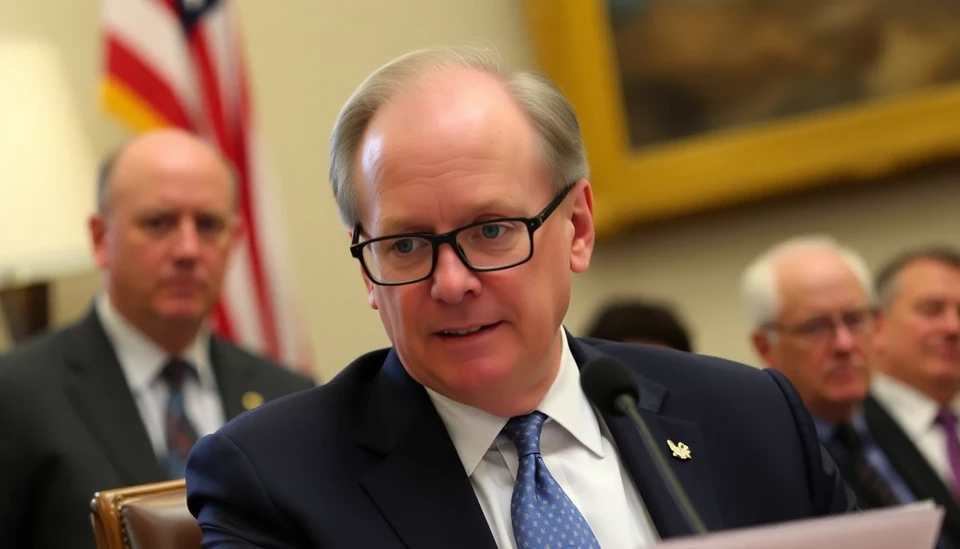
In a noteworthy statement, John Williams, the President of the Federal Reserve Bank of New York, expressed concerns about the rising risks of inflation linked to ongoing tariffs. Speaking at a recent economic forum, Williams highlighted that the protective measures imposed on certain imports could lead to increased prices in consumer goods, reflecting an evolving economic landscape.
Williams clarified that while the Fed has been focused on combating inflation and stabilizing the economy, the impact of tariffs cannot be overlooked. He explained that imposed tariffs can significantly alter the supply chain dynamics, leading companies to pass costs onto consumers. This adjustment may inadvertently contribute to inflationary pressures, which the Federal Reserve seeks to suppress.
During his speech, Williams pointed out that the interconnectedness of global economies means that tariffs may have far-reaching implications. While they are designed to protect domestic industries by making foreign products more expensive, the resulting price increases can be detrimental to consumers. This paradox creates a challenging environment for policymakers who must balance economic growth with inflation control.
Williams did not shy away from emphasizing the Fed's commitment to its inflation targets. He acknowledged that while the current inflation rates have moderated compared to the peaks experienced in previous years, the threat remains. The Fed aims to ensure that inflation remains around the 2% target, but the potential for tariff-related price hikes poses a significant risk to achieving this objective.
The Federal Reserve has previously indicated that it would consider a range of economic indicators, including the ramifications of tariffs, as it formulates monetary policy in the future. As such, Williams’ insights underscore the necessity for a comprehensive approach that weighs both the strengths and vulnerabilities of the economy in today's complex trade environment.
As the U.S. grapples with tariffs and their effects, the implications for monetary policy will necessitate careful monitoring. Williams' remarks serve as a timely reminder for economists and policymakers alike to remain vigilant as they navigate these uncharted waters, prioritizing the stability of the economy while addressing inflation risks.
Overall, the statements from Williams highlight a growing need to evaluate not only traditional economic indicators but also the broader consequences of trade policies as they relate to inflationary dynamics. The focus moving forward will likely involve a nuanced understanding of these interactions as the Federal Reserve contemplates its ongoing strategies.
In conclusion, while economic recovery is underway, tariffs present a formidable challenge that could disrupt efforts to maintain low inflation rates. The Federal Reserve remains watchful, prepared to respond to any emerging threats to economic stability due to tariff-induced price changes.
#InflationRisks #Tariffs #FederalReserve #JohnWilliams #Economy #MonetaryPolicy #TradeEffects
Author: Laura Mitchell



